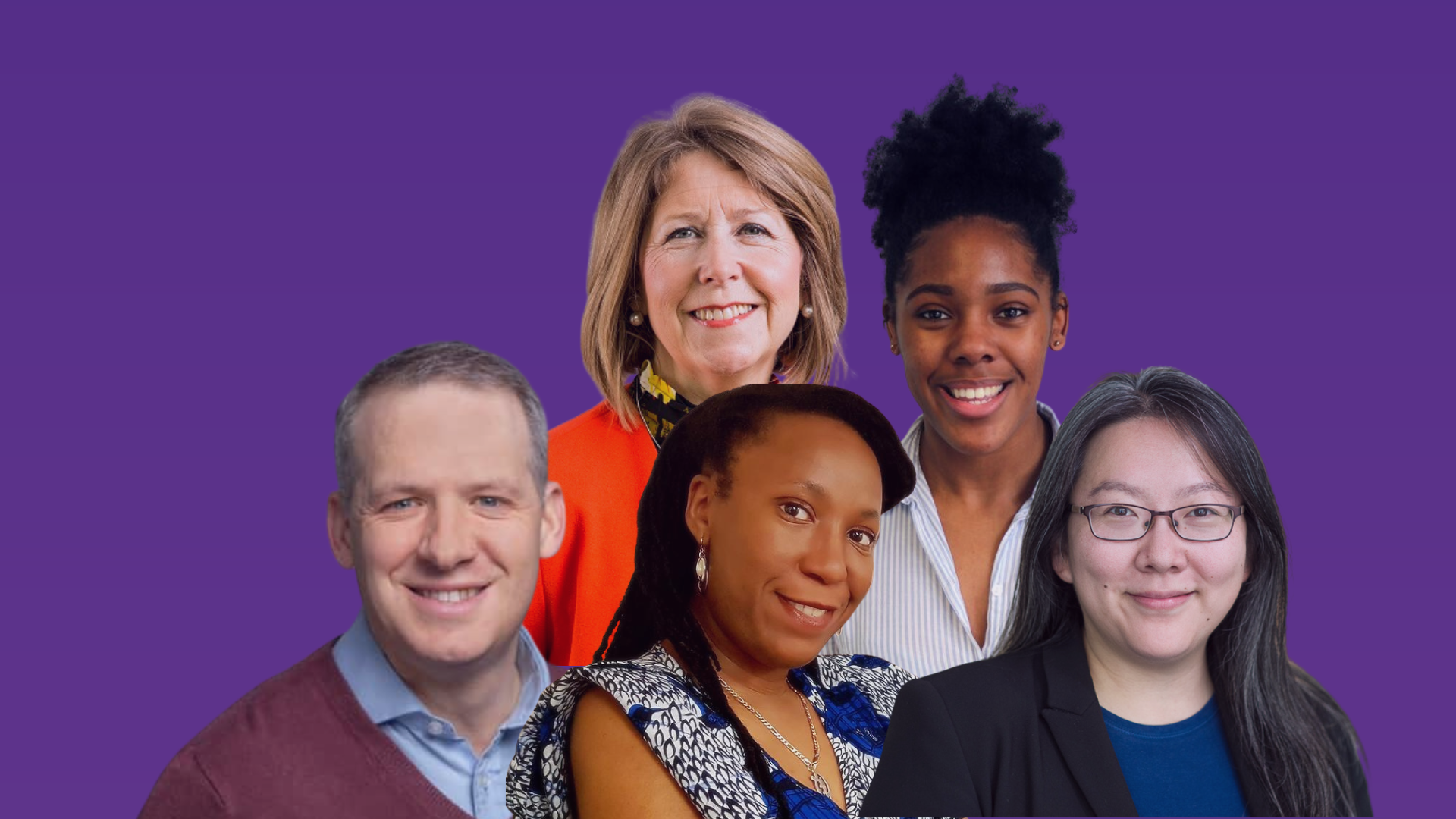Investment committees are critical decision-making bodies that determine the allocation of funds, shape investment strategies, and guide organisations towards their financial goals.
However, social investment specifically considers more than just the financial outcome of an investment; What impact is the money making? What people and communities are seeing a positive difference, and is this sustainable?
Therefore, investment committees need more than financial expertise – they require people who really understand some of the biggest challenges facing communities across the UK and how different organisations are tackling these head on.

Good Finance’s Investment Committees of the Future programme seeks to create a pathway for people with lived experience to join investment committees. Through an e-learning programme and network of support, we want to demystify investment committees and encourage people to use their experience and expertise to foster better decision making.
To date, we’ve had over 35 learners complete the programme, and many have gone on to sit on investment committees or explore opportunities to do so.
Recently I spoke with five people who have been involved with the programme – whether in its development, as learners or as members of the peer network. I wanted to understand why a programme like this is important, and what are some of the key things we should know when it comes to investment committees.
Here’s just 7 things I’ve learned...
1. Investment committees are not so mysterious after all...
It’s easy to imagine a “stately group of IC members with their hooded cloaks making holy decisions about investments!” says Sung-Hyui Park, Partner at Bates Wells, reflecting that before being involved in an Investment Committee, even as a lawyer she wasn’t entirely clear on the sorts of conversations that went on behind closed doors.
Keisha Jean-Joachim-Eurasie, Development and Innovation Manager agrees. Despite her experience of the grant-making process, her perception was that investment committees operated in a very different way; “I think what surprised me was that it wasn't as different as I had expected it to be from what I was already doing” she says.
In reality, investment committees are not as different (or as scary!) as you think says Matt Smith, Chief Executive of Key Fund; “I don't think any committee or panel I've been involved in is doing anything other than trying to do the best it can do to move that money to the right places... It's a group of people that got together to try and get money into organisations that are doing amazing things”.
2. Good decisions come from good culture
The culture of an investment committee can significantly influence how decisions are made. A culture that encourages openness, respect for diverse opinions, and critical thinking leads to better discussions and ultimately better outcomes.
It’s important for committees to create an intentional space, particularly when it comes to welcoming new members. “This is where the role of the chair is fundamental” says Melanie Mills, Head of Social Sector Engagement at Better Society Capital, “[This means] ensuring that new investment committee members feel welcome, feel supported, feel that their lived experience is valued, where they don't feel obliged to be part of groupthink and just fit in”.
“Encouragement and feedback goes a long way” adds Sung-Hyui Park, sharing that receiving positive feedback from fellow committee members, particularly when contributing from a place of lived experience, helped her committee foster an inclusive culture.

3. It’s ok not to know everything
It turns out that even CEOs get impostor syndrome sometimes! In fact, pretty much all of the leaders I spoke to mentioned feeling out of their depth at one point or another. Being able to lean on the expertise of others is key to building confidence.
“I got really comfortable and familiar with saying, ‘Can I just ask you a question about this?’” says Melanie, reflecting on the support she received from other members when she first joined a committee.
Everyone brings different skills and expertise and that’s the beauty of collective decision making – no one person has all the answers.
“I think it really nice to see when I was in the Investment Committee, people who were clearly far more experienced than I had been, in that space for probably decades, asking questions because they didn't quite understand a certain thing within the [investment committee] paper or they just needed to clarify. I think that reminder that it's OK to not know everything.” says Keisha.
But don’t underestimate how valuable your contribution will be; “You will know much more than you think you know that will be valuable” says Matt.
4. Greater diversity = better decisions
“I believe, that if you get too many people who think exactly the same way and have exactly the same experience, you'll get pretty bad decisions” says Matt.
People with lived experience “play a very healthy counterbalance” challenging assumptions and approach, agrees Sung-Hyui, who shared that despite her legal expertise being the primary reason she was recruited to an Investment Advisory Committee, being able to draw on her own lived experience has enabled her to contribute to decisions in even more depth.
Lived experience and insights are “crucial to enable us to actually amplify our impact as a community as a whole, where we are not inadvertently investing or choosing investments in a way that go to our unconscious biases as finance professionals” she added.
Jacy Stewart, Chief Executive and Founder of For Business Sake shared that bringing her perspective to an investment committee has meant that she can champion organisations who on paper may not meet the committee’s full requirements. “If I wasn't there, then that application, which is a good application, would just get thrown out completely because [there isn’t the] understanding of the culture of the organisation" she highlights. “Often all it needs are to have a few conditions added to meet the standard of the committee”.
Bringing a diverse range of expertise, perspectives and both lived and learned experience means that there are fewer blanket assumptions, more opportunity for nuance, and ultimately a greater understanding of organisations who are traditionally excluded from the social investment space.

5. Barriers still exist to joining investment committees
“Some of that's about accessibility, some of it's about confidence, and some of it's about locked in norms around what skills you need to be part of an investment committee” says Melanie, acknowledging that often investment committee roles are not widely advertised.
“I had no interest in sitting on an investment committee at all. It just didn't cross my mind in the slightest” says Jacy before recognising the “bigger picture” of the impact she could help to create. But when it comes to hearing about positions, Jacy agrees that there’s a lack of transparency; “Unless you're in the [social investment] sector, you won't even know that these roles exist because it's through word of mouth or because somebody's known you from somewhere else. They're hardly ever advertised.”
6. "Challenge your own power and privilege”
But while advertising roles more widely is important, it’s not enough. “We can't take for granted that just by providing education or just by advertising a position or just by being appointed, that will be enough to change the power dynamic. There is still quite a lot of work for investment committees themselves, the people who sit there, and also the organisation to whom they are playing a part in the decision making to feel equally accountable for opening up this space” Melanie adds.
There’s an inherent power imbalance between people who have money and are in decision making positions and people who are looking for investment. How can that balance be disrupted?
“If you are [part of an investment committee], challenge your own power and privilege” says Sung-Hyui, sharing that the committee she sits on works hard to understand trends in deals that have been rejected to identify unconscious biases and ensure the committee is kept accountable.
“If we're serious about reaching communities where perhaps traditionally there hasn't been access to social investment, then we have to do more and we have to be able to support people to become part of our organisations” says Matt, emphasising that while they don’t have all the answers, Key Fund take a proactive approach in providing opportunities to observe and 1:1 support for new or prospective investment committee members.
Jacy reflects that while the social investment sector still has work to do to be truly ‘diverse’, progress is being made. “One of the things that did surprise me was the amount of Black and Global Majority individuals that were actually on panels, because if you look at it from the outside, it just looks like we're not there representing. But no, there is representation there, as small as it may be, but it is there. And that was really beautiful to see”.
7. “Be bold and be brave”
Being part of Investment Committees of the Future and observing an investment committee helped Keisha recognise the value that her unique skills and experience could bring to decision making; “Yes, I do have the skills that that would be useful there. Yes, I do have relevant knowledge. I have relevant experience. And I think that's kind of increased in me the drive and motivation to go into the space” she reflects, advising people to be bold in their approach and be brave in asking for opportunities.
“It sounds like a cliché, but [your] input is very valuable and [you] will have perspectives and experiences and insights that, especially if they are from the investee, entrepreneur, running a business, running an organisation, lived experience perspective that the investment side of the [investment committee] just won't have” says Sung-Hyui. “Your courage in being able to join an ‘Investment Committee] and share honestly [your] experiences is what will enable more equitable investments...We need you. We need your honesty, and we need your guidance to be able to collaborate better to increase the positive impact that we're all trying to ultimately achieve”.
If you’d like to hear these conversations in full, click the links below to listen to the episodes on a platform of your choice.
Jacy Stewart, Founder and Chief Executive, For Business Sake
Melanie Mills, Head of Social Sector Engagement, Better Society Capital
Keisha Jean-Joachim-Eurasie, Development and Innovation Manager
Matt Smith, Chief Executive, Key Fund
Sung-Hyui Park, Partner, Bates Wells
Investment Committees of the Future is a Good Finance e-learning programme supported by a network of peer members. If you’d like to sign up for an upcoming cohort, or you’re interested in joining the peer network, click here for more information.
